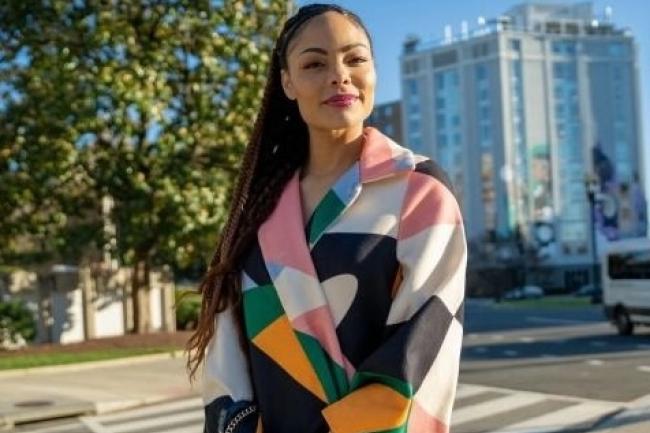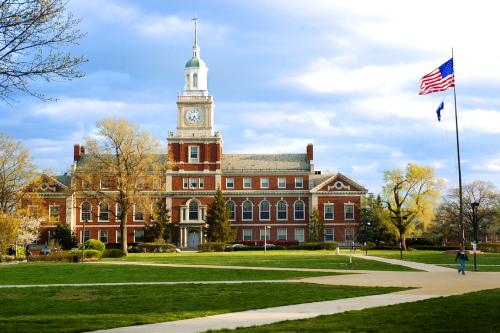In recognition of World Afro Day 2025, happening Sept. 15, Howard University faculty member Dr. Nicole Jenkins is helping to lead a global effort to set a new Guinness World Record for the largest cultural awareness lesson in 24 hours.
Jenkins, an assistant professor of sociology and criminology, is one of several World Afro Day ambassadors working to educate a worldwide audience about natural hair and the cultural and systemic changes surrounding it. World Afro Day, now in its ninth year, is a global day of “celebration and liberation of Afro hair and identity.” Michelle De Leon, founder and CEO of World Afro Day, sought out Jenkins because of her Global Crowns project, a multi-site ethnographic research project that explores the emotional, cultural, and political dimensions of natural hair among Black women across the African diaspora. Drawing from in-depth interviews, participant observation, and digital storytelling, Global Crowns centers the lived experiences of Black women living in the United States and other countries such as Cuba, France, Brazil, and Burundi.
“De Leon enlisted the help of individuals who care about and are knowledgeable about the topic of natural hair and can also amplify the message around these efforts,” said Jenkins. “World Afro Day is pairing up with the Guinness Book of World Records to attempt the largest teach-in in history.”
Natural Hair Research
On Sept. 15, participants can virtually join the record setting attempt by logging into the designated platform with their email address via an electronic device, watching a 30-minute film about natural hair care and history, and completing an interactive quiz. Each completed quiz counts towards the record attempt. Participants can pre-register for the event ahead of World Afro Day 2025. Jenkins is encouraging Howard students, faculty, and staff to enroll in the event using their university email address to track Howard’s contributions to the record attempt.
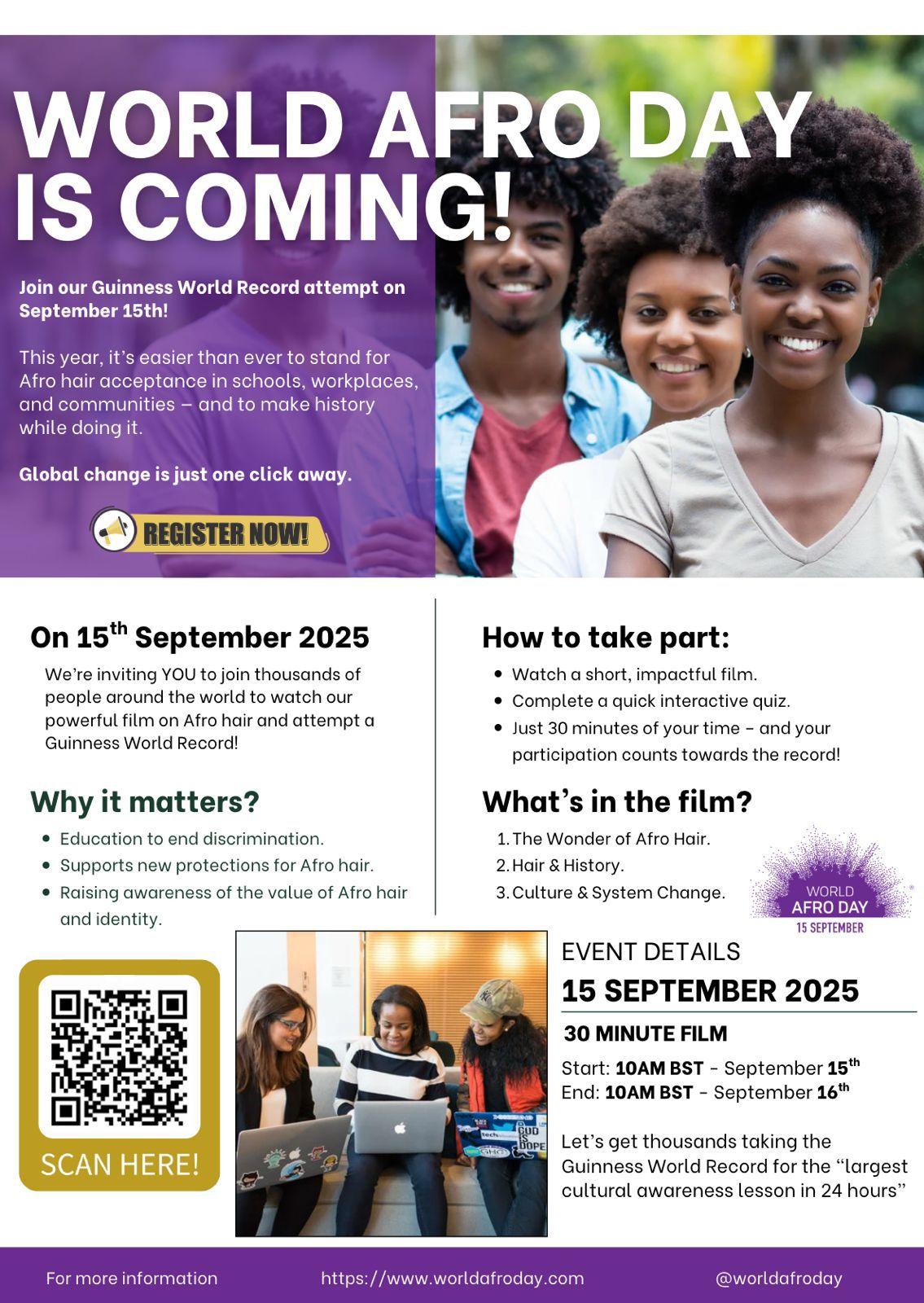
Jenkins joins the international cohort of changemakers that are committed to advancing hair equity, dismantling texturism, and advocating for institutional policies that affirm the beauty and rights of afro-textured hair. As an Afro Day ambassador, Jenkins used her platform as a sociologist, psychohairapist, and public scholar to amplify the movement through academic research, public speaking events, and grassroots engagement. Jenkins’ experience with her own natural hair was the motivating factor for her to investigate the experiences of other Black women navigating institutional spaces with natural hair.
“I grew up in Southern California in a very small, rural desert town that was primarily white,” she explained. “My hair was very unique, and it was a topic that made me stand out as a kid. I had a lot of hair anxiety and a lot of hair trauma growing up. When I went to graduate school, I wondered what other folks’ experiences were. What were other Black women experiencing when they were wearing their natural hair in different institutional settings? As a grad student, I spent two years in an African-owned braiding and weaving salon to capture those experiences.”
This ethnographic study is part of Jenkins’ forthcoming book, “EnTANGLEment: Resistance and Assistance Wrestling Beauty, Blackness, and Family in the U.S.,” which is currently under contract with the Princeton University Press. Jenkins’ work, she adds, draws heavily on Black feminist thought, urban ethnography, and diasporic studies.
“The book traces how women simultaneously resist and assist white supremacist and patriarchal systems,” she said.
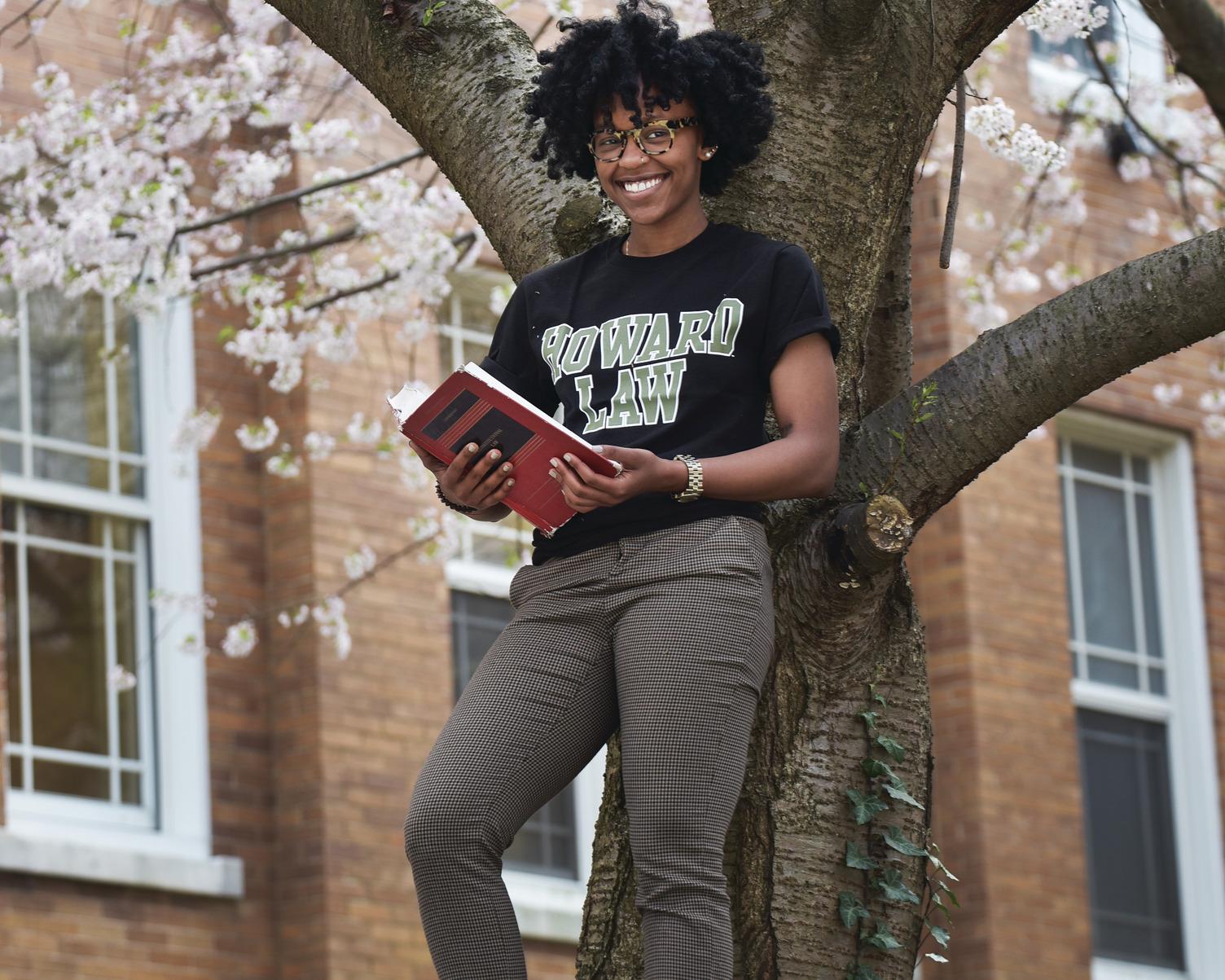
During the 2024-2025 academic year, Jenkins was a visiting professor at Harvard University in the Faculty of Arts and Sciences’ Sociology Department where she continued her research on the cultural significance of natural hair. As a part of the Global Crowns project, Jenkins developed the Dataspheres AI platform to assist with the data collection process and language translations. The platform was built by an AI engineer and software architect who also manages the platform's technology requests. Jenkins shared that AI technology was integral to her research process. With Global Crowns, which was featured in Nature Magazine in 2024, Jenkins used MidJourney V6, a generative AI model that can create images based on text descriptions.
Preparing Young Qualitative Scholars
At Howard, Jenkins is bringing her scholarship into the classroom and educating students on ethnography as a qualitative research methodology with the graduate-level courses “Principles of Ethnography” and “Ethnographic Fieldwork.” Jenkins created the two-part doctoral program within the Department of Sociology and Criminology to develop the next generation of ethnographic researchers.
This fall, she’s teaching the "Problems of the Black Community" class. The course, available to undergraduate, master’s, and doctoral students, highlights “different concerns within the Black community such as colorism, housing inequality, and healthcare.
“And of course we have a week on natural hair,” said Jenkins.
Keep Reading
-
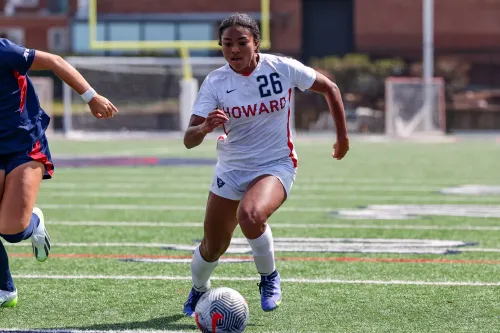
-
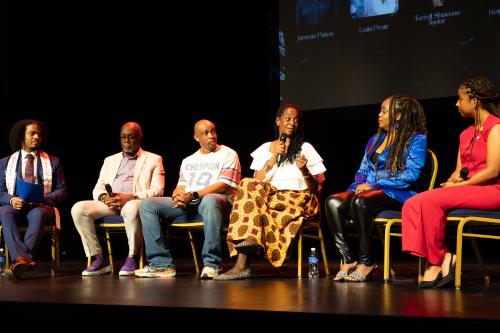 News
NewsDuring Chadwick Boseman Day, Students and Alumni Honor the Late Actor and Celebrate Howard Artists
Sep 2, 2025 6 minutes
Find More Stories Like This
Are You a Member of the Media?
Our public relations team can connect you with faculty experts and answer questions about Howard University news and events.
Submit a Media Inquiry

